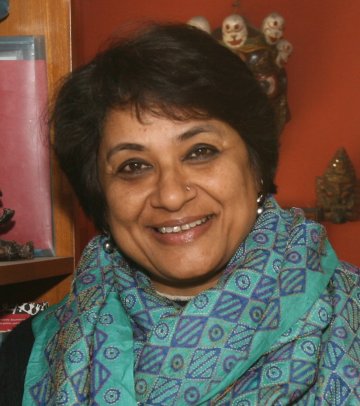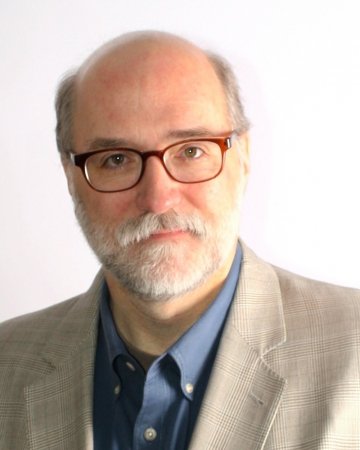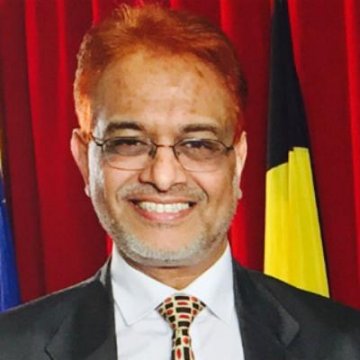Sabine Mandl is a senior researcher at the Ludwig Boltzmann Institute of Human Rights (BIM), Vienna, working in the field of children’s and women’s rights with special emphasis on “access to justice” and “violence”.
She studied Political Science, Journalism and Communication Science and holds a Trainer Certificate for Adult Education. At the BIM, she is currently responsible for the EU funded project “Improving Juvenile Justice Systems in Europe – Training for Professionals”, which is led by IJJO (International Juvenile Justice Observatory).
From 2013 to 2015 she was the coordinator of the EU-Daphne project on “Access to specialized victim support services for women with disabilities who have experienced violence”, carried out by four European countries – Austria, Germany, United Kingdom and Iceland.
Additionally, she has been engaged in several projects focussed on, for example, the “integration of refugee and asylum seeking children in the educational system in Europe”, as well as “children’s view on engaging in European and international decision-making”.
Apart from her work at the BIM, she has been a lecturer at the University of Vienna since 2002. Working within the faculty of history and political science, she lectures on women’s rights, media and politics, the political system and qualitative empirical methods.
IJJO Interviews
IND
India
Enakshi Ganguly Thukral is a human rights activist and child rights advocate, researcher and trainer for the past three decades, working on wide- ranging socio-legal issues such as development induced displacement, women in the unorganised sector, reproductive health, child labour, child trafficking, laws and policies governing women and children, education, violence against children and juvenile justice.
Since co-founding HAQ: Centre for Child Rights, in 1998, she has been working in focused manner on children’s rights. Working on children and governance, and child protection, HAQ is actively engaged in monitoring government’s performance, public education and advocacy on children’s rights. It works as a resource and support base providing information, referral service, legal aid, strategic litigation, training and capacity building of all those working with children or on issues concerning them, and the children themselves. It was one of the organisations that had intervened in Supreme Court of India against the plea for lowering the age of juvenility.
Enakshi has been part of drafting committees of laws, polices and plans of the government of India including the for the government’s Five Year Plans. She is the president of Society for Rural and Tribal Initiatives (SRUTI), Delhi, on the board of several organizations including the National Gender Centre of the Lal Bahadur Shastri Academy of Administration, Government of India; member of the Editorial Board of “Children, Youth and Environments”- A Journal of Research, Policy and Applications, University of Colorado; the thematic group for the World Congress on Juvenile Justice, Geneva, January 2015. Enakshi has authored and co-authored a number of books, articles, manuals and handbooks on a wide range of issues; been invited as a technical expert on issues related to children, presented papers at various national and international meets, worked closely with the UN system. She has been awarded the Ashoka Fellowship in 2002 in recognition of HAQ’s work on children.
In 2014 she received the IJJO's 'Juvenile Justice Without Borders' International Award in representation of a coalition of Indian NGOs, honored for their struggle against the non-respect of internationally accepted principles, in particular lowering the age at which children are deprived of liberty in India and the introduction of a waiver system for 16-18 year olds committing serious offences, and for its advocacy work against introducing the retributive justice approach in juvenile justice legislation.
USA
United States
Jeffrey A. Butts (Ph.D., University of Michigan) is director of the Research and Evaluation Center at John Jay College of Criminal Justice and an adjunct member of the doctoral faculty in the Graduate Center of the City University of New York (CUNY). Previously, he was a research fellow with Chapin Hall at the University of Chicago, director of the Program on Youth Justice at the Urban Institute in Washington, DC, and senior research associate at the National Center for Juvenile Justice in Pittsburgh. Dr. Butts has managed more than $17 million of research projects and worked with policymakers and justice practitioners in 28 states. He has published two books, dozens of monographs and reports for government agencies and foundations, as well as articles in academic and peer-reviewed journals. He began his justice career as a drug and alcohol counselor with the juvenile court in Eugene, Oregon.
BGD
Bangladesh
The Honourable Justice Muhammad Imman Ali was elevated as Judge of the Supreme Court of Bangladesh, High Court Division in February 2001 and Appellate Division in February 2011. Previously, he had been Deputy Attorney General for Bangladesh from September 1998 to February 2001.
His book, ‘Towards a Justice Delivery System for Children in Bangladesh’, was published by UNICEF in 2010. He has also written a chapter on the new Children Act 2013 in the book ‘Justice for Children in Bangladesh’ by Najrana Imaan, published by Save the Children.
FRA
France
Julie Zerlauth-Disic coordinates the UNICEF France ´Ville amie des enfants´ (A city that's a friend to the children) program. In particular, she establishes and develops relationships between the local authorities involved in the program. She also played a role in the creation of the UNICEF national opinion project in 2013: "Let´s listen to what the children have to say", a study on the social integration of young people, through the voices of young people.
‘Ville amie des enfants’ is a UNICEF international initiative which links cities together through their engagement with the improvement of young people's well-being. The program is one of action and asks the cities involved to present a detailed proposition of their plans and projects with the objective of improving the situation for young people in that area, primarily focusing on developments in security, health, education and the opinions of young people.
The program started in France in 2002 with 12 participants and today has around 240. It allows the participants to benefit from a network of communication and training, and holds an annual conference whose aim is to encourage a dynamic exchange of good practices, ideas and projects.




